Review of investment law in Vietnam
The Government has submitted to the 9th Session of the 15th National Assembly a law amending many laws in the fields of investment, finance, and budget, including the Investment Law.
 |
| Lawyer Nguyen Hong Chung - Vice President and General Secretary of VIPFA. Photo: HC |
Speaking to reporters of the Industry and Trade Newspaper before the information that the Government submitted to the National Assembly a law amending many laws in the fields of investment and finance, including the Investment Law, lawyer Nguyen Hong Chung - CEO of DVL Ventures Ecosystem, Vice President and General Secretary of the Vietnam Industrial Park Finance Association (VIPFA) - said: The history of Vietnam's investment law has gone through many stages of development, reflecting changes in state management thinking and the process of global economic integration.
Specifically, in 2005, together with the Enterprise Law, the Investment Law 2005 was born, marking an important step forward in Vietnam's international economic integration process. The Investment Law 2005 established a common investment law system, applied uniformly to both domestic and foreign investors.
“This unified application has created a more level playing field, increasing the predictability and attractiveness of the investment environment. The formation of a unified legal framework demonstrates Vietnam’s strategic orientation, aiming to harmonize the law and create favorable conditions for all economic sectors,” said lawyer Nguyen Hong Chung.
In the 2014 Investment Law, not only inheriting and developing from the 2005 Investment Law, the 2014 Investment Law also continues to refine definitions and procedures, along with introducing important concepts such as "Investment Registration Agency" (the competent authority to grant, adjust and revoke Investment Registration Certificates) and "National Investment Information System" (a specialized system to monitor, evaluate and analyze the investment situation nationwide).
These additions demonstrate the continuous efforts to institutionalize and standardize investment management processes, aiming to improve administrative efficiency and information transparency.
The Investment Law 2020 is the latest version, effective from January 1, 2021, completely replacing the Investment Law 2014. This Law clearly regulates business investment activities in Vietnam and business investment activities from Vietnam to foreign countries.
“The addition of the scope of regulation of investment and business activities from Vietnam abroad clearly shows the maturity of the Vietnamese economy and the increasing role of Vietnamese enterprises in the international arena. This reflects proactive policy adjustments, aiming to create favorable conditions for Vietnamese enterprises to expand their operations globally and manage investment flows abroad, not just focusing on attracting FDI as before” - VIPFA General Secretary informed.
 |
| The Investment Law 2020 has brought about many positive impacts, contributing to improving the business environment and attracting investment in Vietnam. Illustrative photo |
Contribute to Vietnam's business environment
According to economic experts, investment law in general and the Investment Law 2020 in particular have brought about many positive impacts, contributing to improving the business environment and attracting investment in Vietnam. Accordingly, one of the highlights of the Investment Law 2020 is the effort to reform administrative procedures and reduce the legal burden on businesses.
Analyzing this issue further, Mr. Nguyen Hong Chung said that, compared to the 2014 Investment Law, the 2020 Investment Law has abolished 24 business lines, added 8 new business lines and amended 14 business lines, reducing the total number of conditional business lines from 243 to 227.
This change demonstrates the Government ’s commitment to creating more favorable conditions for businesses to enter the market. The law also clearly defines the principles and conditions for business investment, overcoming the situation of scattered regulations in many different documents, causing inconsistency and confusion for investors in the past.
The 2020 Investment Law also provides for the first time a definition of "Innovative Startup Investment Project". This has created the premise for more open regulations, according to which foreign investment projects related to innovative startups and innovative startup investment funds are exempted from investment registration procedures, only needing to register a business. This is important in creating a dynamic startup investment environment.
The investment legal system, especially the Investment Law 2020, has impacted the attraction of foreign direct investment (FDI) and domestic private investment, bringing development opportunities for economic growth in Vietnam.
However, despite significant improvements in legal documents, experts and businesses still believe that the Investment Law 2020 "has not created a breakthrough in procedures" in practice. Because the overlaps in the provisions of the Investment Law with related laws lead to obstacles in the policy implementation process.
Specifically, the investment sector is currently regulated by a complex network of legal documents such as the Investment Law, Public Investment Law, Land Law, Enterprise Law, Construction Law, Environmental Protection Law, and Housing Law. Within these laws, there are many provisions that contradict each other, causing difficulties for businesses and investors.
This situation makes businesses, investors and state management agencies confused about which law to follow, leading to many costs in terms of time and money and making many projects impossible to implement.
 |
| The Investment Law has made strides in reforming administrative procedures. Photo: Thu Hang |
Continue to improve investment law
Experts say that the Vietnam Investment Law is an indispensable element in the economic legal system, playing an important role in orienting and managing investment capital flows. Although the Investment Law 2020 has achieved many successes in improving the business environment and attracting investment, legal overlaps and administrative barriers remain major challenges.
Accordingly, to effectively attract investment, the most effective way is to continue to improve the Investment Law through a comprehensive approach, focusing on legal harmonization, substantive administrative reform, and addressing non-legal barriers.
“In this way, Vietnam can build a truly open, transparent and competitive investment environment, realizing the goal of becoming an attractive destination for domestic and international investors,” said lawyer Nguyen Hong Chung.
Previously, responding to the Ministry of Finance's dispatch on assessing the implementation status and proposing amendments and supplements to the Investment Law and Decree No. 31/2021/ND-CP, a representative of the Vietnam Federation of Commerce and Industry (VCCI) said that the Investment Law is an important document, having a great impact on Vietnam's investment and business environment and receiving the attention of the business community.
Also according to VCCI, basically, the Investment Law 2020 and later amended and supplemented laws have overcome the obstacles, inadequacies, and overlapping conflicts between the legal systems on land, construction, bidding, housing, real estate business, environmental resources, etc.
Through the amendments, the Investment Law has also made progress in reforming administrative procedures, facilitating the investment process, when strongly decentralizing the authority to approve investment from the Prime Minister to the Chairman of the Provincial People's Committee, or establishing a special investment process in an open approach, most of the procedures in the investment process will be managed according to the post-audit mechanism...
However, through the implementation process and with the requirement of administrative reform, clearing bottlenecks, promoting the investment and business environment, the Investment Law has gradually revealed its limitations, from thinking to management mechanism.
To overcome these problems, VCCI recommends considering and reviewing a number of issues related to: Management mechanism for foreign investors conducting business investment activities in Vietnam; approval of investment policies; transfer of investment projects; conditional business lines; management mechanism for overseas investment activities.
The Investment Law 2020 has been an important tool in investment management and orientation, especially in the context of Vietnam's efforts to attract high-quality FDI and participate extensively in new-generation trade agreements. Although the Investment Law 2020 has achieved many successes in improving the business environment and attracting investment, shortcomings in legal overlaps and administrative barriers remain major challenges. |
Source: https://congthuong.vn/go-diem-nghen-trong-luat-dau-tu-buoc-di-can-thiet-390623.html












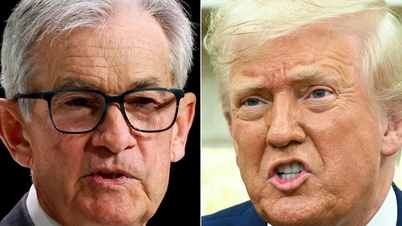


















































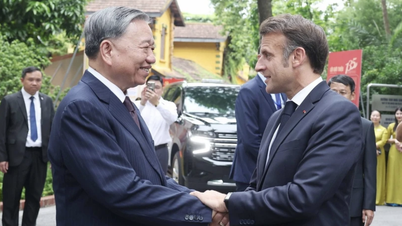



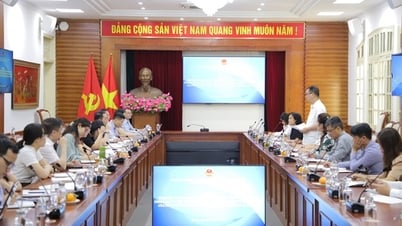


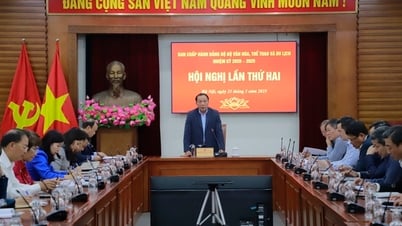


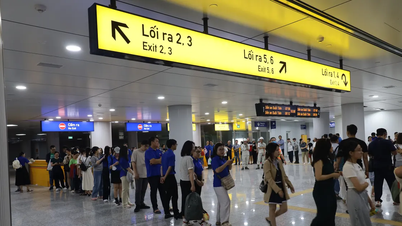




















Comment (0)